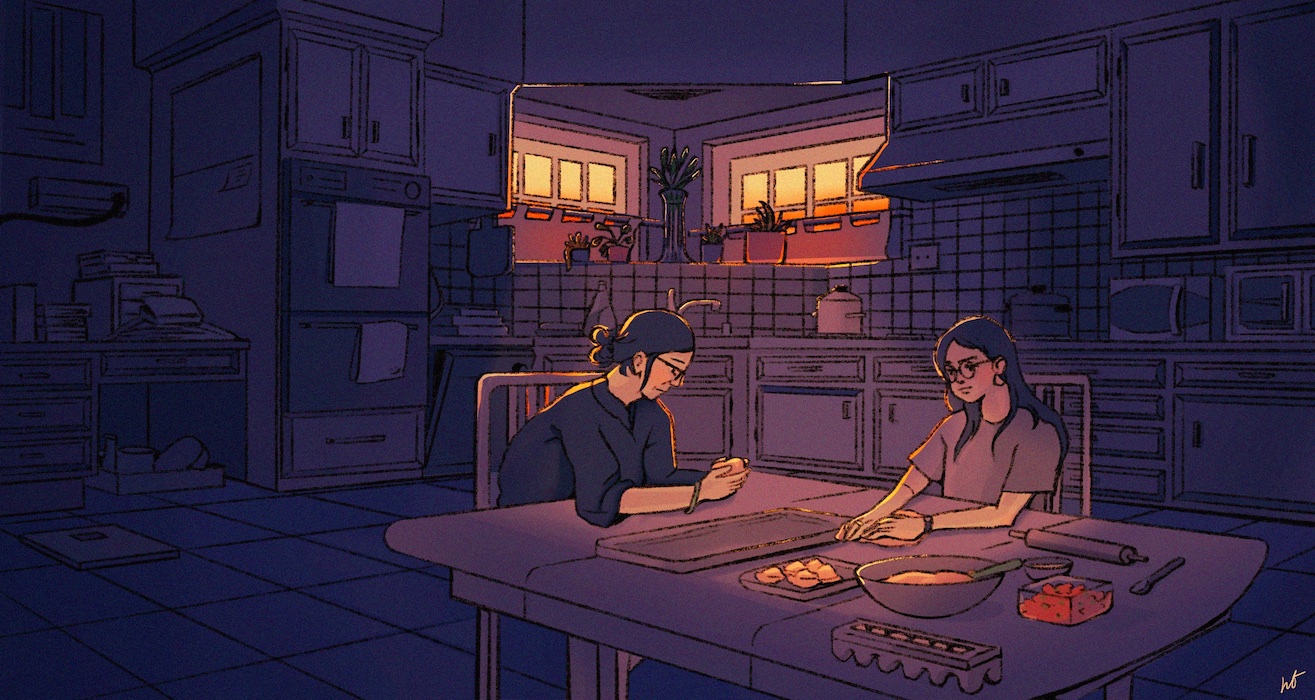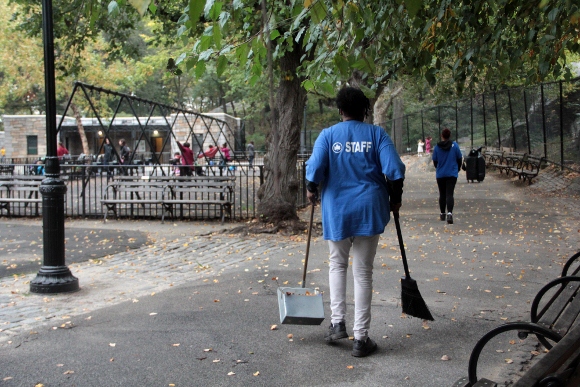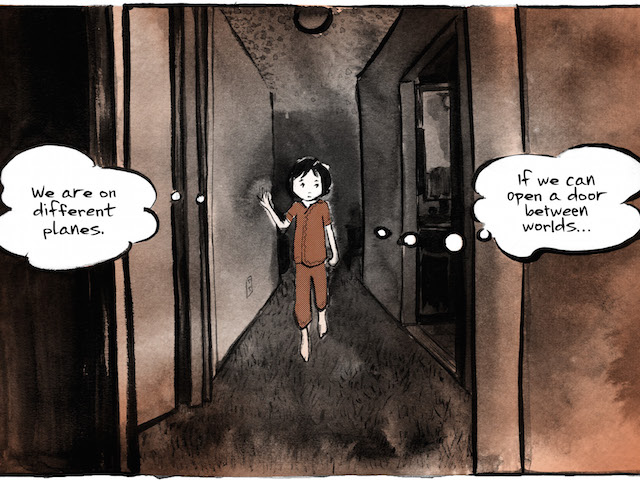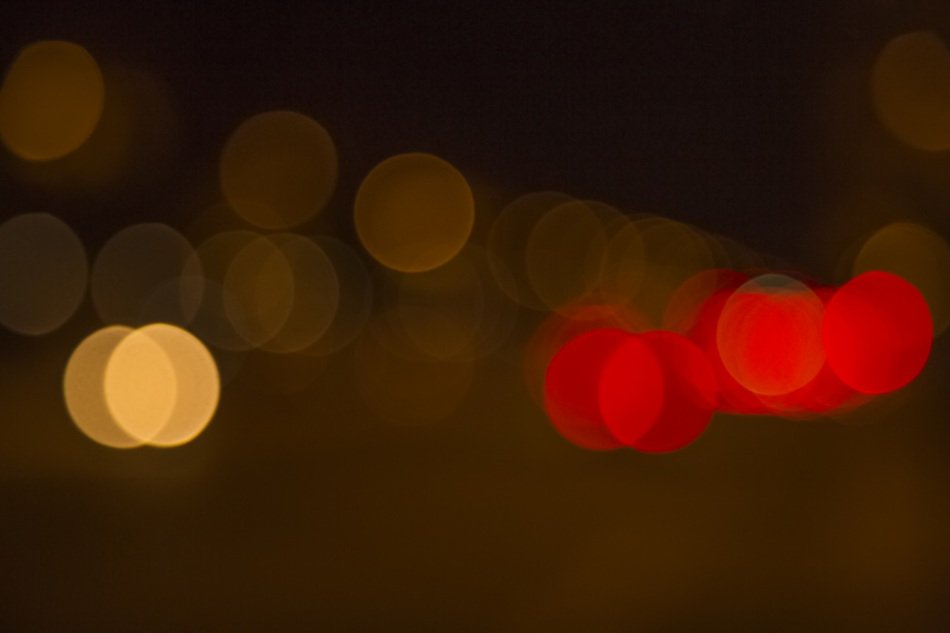Why care so much for someone who hasn’t done the same for you? As a feminist offering to the project of abolition, Saidiya Hartman reflects, “Care is the antidote to violence.”

January 21, 2021
“Care is the antidote to violence.” — Saidiya Hartman
Every two days, my mother and I pack neat vats of phở bò and bún bò huế, bags of chuối chiên and cơm chiên Thái, and gallons of chè for my grandmother at her assisted care facility. I am certain there’s no way my grandmother will eat all of this. As we enter her quarters, my grandma is lying on her side. The sound of the local Vietnamese news crackles through an outdated television set like summer cicadas filtered through static, barely filling the room. Má ơi, Hà là ở đấy, my mother calls, just loud enough for her mother to wake. Bá Ngoại flashes me a weak smile.
I’m not new to watching life slip away, though every time I feel just as deeply unprepared to welcome my grief. Seeing my grandmother come closer to death brings about a different shade of mourning, one complicated by the fact that I know my grandmother has hurt my mother. Some days, I feel great sadness watching her muster up all her strength just to eat. Other days, I can’t look her in the eyes without feeling overcome by incredible rage.
I ask my mom: Why do all this? Why wake up before sunlight can spill through the windows to start boiling stock? Why toil for hours until your back gives out over pastries? Why care so much for someone who hasn’t done the same for you? She replies calmly: Your grandmother won’t hurt anyone anymore. There is no reason she should have to suffer hungry.
What I know is that Bá Ngoại was born in 1938. The eldest of her siblings, she was responsible for caring for her brothers and sisters while still attending school. She eventually dropped out. All the while, the first Indochina war broke out against French colonial rule, and the United States began its long imperial conquest in Vietnam by funding French efforts against revolutionaries. Two years before my grandmother became pregnant with my mother at 18, Vietnam was split along the 17th parallel by the Geneva Accords. In 1975, my grandfather and uncle became boat people—they survived the journey across the ocean and resettled in California. My mother stayed in Vietnam for 10 years before my grandfather could sponsor her over. Meanwhile, my grandmother spent these same years all over Southeast Asia, clinging onto the hope that one day she could join our family in the United States.
After I learned how my grandmother had treated my mother, I used to want to see my grandmother suffer. But I know now that our capacity to hurt others doesn’t come from who we are. It comes from the hardships we’ve experienced. When my mother tells me that my grandma is no longer capable of harm, she’s telling me that she understands that her mother never wanted to hurt her. At the end of my grandmother’s life, my mother is not vengeful. She is grieving. Seeing her mother suffer does not help her heal. Rather, what has allowed her to forgive and care for my grandmother is the understanding that retribution for harm does nothing. My mother simply tells my grandmother to eat more, that being able to eat well is a sign that she is still healthy, still able, still here. Every time I watch my mother prepare another bowl for my grandmother, what I know is that she forgives her mother. And so, I come to abolition.
It’s some time in the fall of 2019. I am taking a day off from my job to go to Sacramento to attend an anti-deportation rally. Three months before this, I joined a freedom team advocating for Tith Ton, an incarcerated Cambodian refugee from Stockton facing a direct transfer from San Quentin State Prison to ICE. Now, we’ve garnered over 30,000 signatures in support of stopping his transfer and potential deportation. This particular morning is brisk, so I’m keeping my hands deep in my coat pockets as I approach the Center for Empowering Refugees and Immigrants (CERI). A swarm of Khmer elders gathers outside. They’re huddled together, far more bundled up than I am, chattering in Khmer, handing each other water bottles and tangerines. I make my way through, bowing my head every once in a while to apologize for intruding as I meet up with fellow organizers. It turns out we’re already delayed, but what’s to be done? We have a bus load of elders, moving at their own pace. Anyway, we’ll probably need to take a break halfway so folks can go to the restroom.
When we roll up to the state Capitol, we are late as expected. As I step off the bus, I’m a bit disappointed to realize it’s not any warmer than it was in Oakland. The elders file off and we gather around the lawn, listening to impacted family members plead to be reunited with their incarcerated loved ones. As the program concludes, we’re told to begin chanting as we enter the building. Immediately, the elders begin yelling “When We Fight, We Win” in Khmer, somehow immune to the cold morning that numbs my hands. They’re raising their signs and fists and filling the Capitol building in droves.
Initially, I was surprised to see these elders travel two hours for a rally. I imagined that the weight of losing loved ones, compounded by the trauma of migration and capitalism would deter them from participating in these actions. I wouldn’t blame them for simply being tired. But I recognize now that my assumptions were purely a result of my own ignorance and hubris. How naive was I to think people who’ve lost so much would not be moved to keep one of their own?
What’s apparent to me now is that these elders aren’t here to play. And I’m not either. I don’t know Khmer, but I’m yelling along with them. And for a moment, I’m seeing myself from somewhere other than my body. I’m watching people across generations, each affected by the legacies of war and racism, moved by a unique kind of love, the kind which demands we move mountains for each other. The kind that has seen loss time and time again, but still believes in our collective capacity to fight the powers that be and win. I see people who look like my grandma and my mother fill the halls of the Capitol, making it hard for suits to get to their offices where they can usually ignore us. This time, we’re undeniably here and making it clear that they’re not taking another person away from us. We won’t let them. We can’t let them.
In California, the convergence of the criminal justice and immigration systems uniquely impact my own Southeast Asian community. Direct transfers from state prisons to ICE facilities account for over 70 percent of the immigration detention population nationally. Many of these transfers are folks whose stories mirror those of my family: refugees and immigrants fleeing their homelands, separated from their families and communities, only to be resettled into poverty and burdened with unprocessed trauma. Under capitalism, we all do things we aren’t proud of. We might look for alternative ways to make ends meet after we’ve fallen unceremoniously into poverty. Maybe a lack of health care leads us to medicate however and wherever we can or to find reprieve in the bottom of a bottle. No one can make the right decision when they are battling their own demons. We are all implicated but only some of us are sentenced. These community members impacted by criminalization once again experience separation via carceral walls from those who love them. Upon their release, they are transferred to immigration detention, facing incarceration again and potential deportation to countries they no longer know.
In this work, I’ve experienced both profound grief and joy. When we stopped our first direct transfer, I remember reading a deluge of messages in absolute disbelief, then scrambling to quickly rent a van to pick up our friend at the bus stop. I burst into tears of relief. A few weeks later, two of our friends were transferred to an ICE facility in another state. In that moment, I was quickly forced to reckon with how rare freedom is. I wonder how many of us can continue this work. How were we ever meant to hold triumph and tragedy in such little time? But what I’ve learned from people in this fight is that abolition organizing is both painful and deeply beautiful. And the beauty of abolition organizing is not found solely in the wins we have.
I don’t mean to make light of losses in any way, and freedom will always feel infinitely sweeter, but what I’m trying to say is that in this work we have to sustain ourselves. I realize that abolition is not a thought exercise; we want to see every cage burn to the ground, but we cannot burn down with them. To make sure we all can get to that future we can only imagine right now, we must recognize joy and care in any capacity we find. That looks like sharing dinner while strategizing on 8th St in Oakland, well after our work days are done, or sending reminders to each other to drink water while working on active campaigns. It’s realizing that that moment where I am yelling at the top of my lungs with elders in the state Capitol building is also a sort of win in itself. Abolition is finding moments of reprieve, amid gut-wrenching heartache and loss. And then doing it all over again until we see everyone free.
Months later, I’m watching my grandma eat bì cuốn that my mother and I prepared. I struggle to carry on a conversation longer than a few words with grandma these days. But her eyes light up when I tell her about what I’m doing with my life, so most of our time together is composed of recounting my movement work. This time around, I’m telling her about the Capitol, about all the elders who boarded that bus with me that fall morning. I’m telling her that they share her worn skin, that they also bundle up in sweaters on sweaters, and that like my grandma, they also flash me smiles instead of exchanging words. And I imagine in a different universe, my grandma is not sick in the way she is now. She travels slowly. She probably can carry on a conversation beyond a few pleasantries, and maybe she can still take the xe đò hoàng to visit me in Oakland. I wonder if in that place, she boards the bus with me outside CERI and we both yell together to demand the governor keep our people home.
But in this world, the one where it takes her close to half an hour to eat this wrapped rice paper, what she can do is spare a few words to tell me I’m doing a good thing and that she’s proud of me. And that’s enough to give me the conviction to set fire to every single prison myself.
Despite being a visual artist, I’ve never been talented at handicrafts. As my mother watches me struggle to cut and paste construction paper, she hands me a stack of greeting cards she has kept stashed away. These are much prettier, she says through a chuckle, and I agree with her. My incarcerated friends deserve better than poorly cut and assembled printer paper this holiday season.
Letter writing forges a connection across carceral walls built to isolate us from one another. In my letters, I see people who have chosen to open themselves up to the possibility of relentless kindness despite their trauma. They are people who don’t want to be seen only for their worst mistakes and would do anything to see their families again, as anyone would. Folks impacted by the criminal justice system make it clear to me that accountability doesn’t look like incarceration, but that we can all choose to treat each other with grace and patience.
At the core of my own abolitionist beliefs is that I value people and relationships. I’ve made friends I really cherish in this practice. In our correspondence, we take time to mediate the grief that comes with these particular times, within and outside of carceral walls. My pen pal follows up with thoughts on the new season of the “Bachelor” and how to make a lowrider by reconfiguring a tractor engine. With every letter, I find space to slow down, acknowledge the losses we’ve experienced, but also recognize that no one’s life is entirely defined by grief.
As my mother helps me sort through the more festive cards to send, I tell her about one of my friends inside, a Vietnamese person who is facing deportation after serving a 20-year sentence. We fought for his freedom but it was not granted. From our letters, I have learned that he is someone who endearingly refuses to acknowledge the purple and gold NBA 2020 championship—of course, who could blame him? Born and raised in the Bay Area, being a Warriors fan is part of his DNA. I see someone who looks kind of like me, except he might have wrinkles sprawling from the corners of his eyes. I can picture my friend at a Vietnamese family function, downing Heinekens and belting a terrible rendition of Michael Jackson’s “Billie Jean,” while my mother, aunts, and uncles jokingly tell him to stop. I imagine his laughter in response probably sounds like the crash of a wave against aged rock at high tide. When we finally do talk on my phone, he sounds like I think he should, instead his chuckles don’t crash; they ebb in and out like when the ocean slides through a tide pool. My mother overhears our conversation and asks if I was calling an uncle. I tell her no, but he might as well have been.
In a letter early in our correspondence, I expressed my frustrations and anger at the governor of California and the prison system. With a flick of his pen, Governor Gavin Newsom can call for mass releases from California prisons and stop direct transfers during the pandemic. He simply chooses not to. We watch as community members, friends, and family are kept in cages during a time where any space less than six feet apart can be a death sentence. How can such powerful people see blood on their hands and decide there is nothing to be done?
My friend asks me, why do you do this work? What compels you to feel so strongly to fight for complete strangers? In my reply, I start writing about how prisons are vestiges of slavery and how incarceration and deportation disproportionately affect people of color. I write that all of this makes me so terribly angry and sad that I can’t imagine not doing whatever I can to tear it down to the ground. In these moments, I am reminded that abolition is not easy. When it all feels too much, I ground myself in what’s possible when this all burns down. What a wonderful world we can live in when we build a culture of care that “nurtures human growth and potential,” as Mariame Kaba writes in her article “A Jailbreak of the Imagination”. I want to live there, in a place far more patient and beautiful than the one we currently know.
Then I scrap what I’ve written. There’s no need to lecture my friend. Instead, I’m thinking back to an earlier letter, where I tell him about the food my mom has made. He responds with dishes his own mother makes, each one deeply familiar to my palette: thịt kho, thịt xào, thit nướng ng, cá kho, canh chua, hủ tiếu, bún riêu, and bún bò. I begin my letter again with the concession that I know we are far from dismantling the prison industrial complex. But as I watch my mother lovingly feed my grandmother, I see a glimpse of the world that is possible. It’s a place where my mother and I drive down the California sunset, as I secure pots of canh on my lap while she hits a roundabout, where Al Green is the background to our laughter as the soup inevitably sloshes onto my jeans. Where I’m showing my grandma paintings I did recently and she questions whether they’re photos as she brings the images closer to her face. Where over a quiet dinner, my grandmother lowers her head and apologizes to my mother for things I will never fully know.
This essay is published as part of A World Without Cages, the Asian American Writers’ Workshop’s ongoing project on The Margins that imagines the end of mass incarceration and migrant detention by bringing together the work of writers on the inside and on the outside. This project aims to nurture writers, activists, and intellectuals to dream new worlds beyond punishment, policing, surveillance, segregation, and exclusion. Read more in the project here.



